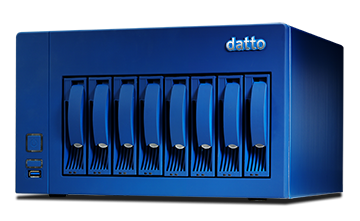
“In 2011, according to U.S. Census Bureau data, there were 5.68 million employer firms in the United States. Firms with fewer than 500 workers accounted for 99.7% of those businesses, and businesses with less than 20 workers made up 89.8%.” – Small Business and Entrepreneurship Council
Introduction:
By those numbers, chances are you or someone you know is either self-employed or employed by a small business owner. Building a small business is a praiseworthy feat; business owners pour their hearts into growing their company, supporting employees and their families, and play a critical role in developing the local community. Small businesses, by the same criteria, are at a serious risk; less IT resources and operating cash flow (OCF) means a period of sustained downtime could sink a company financially.
With so much at stake, it is with great urgency that small business owners of every size consider their Business Continuity plan.
What is Business Continuity?
Business Continuity is a completely managed service that incorporates the strategic planning of Disaster Recovery, enterprise-grade backup technologies, and all the benefits of cloud computing to insure your business critical systems are up and running regardless of the situation.
Accidentally delete an important file? Restore it within seconds. Server compromised during an electrical storm? Virtualize it in the cloud within minutes and keep your company afloat.
An intelligent Business Continuity solution is designed from the ground up to protect your company. With the right technology and Managed Service Provider (MSP), small businesses are more likely to survive unpredictable business interruptions.
What should I expect from my Business Continuity Provider?
All Business Continuity plans should include local and cloud backups of your business data, be able to virtualize systems quickly, and a Managed Service Provider (MSP) that possesses a clearly outlined contingency plan.
Business Continuity is not just data backup; it is a complete failover procedure ready at a moment’s notice.
What are some essential questions that should guide my research?
- What are your company’s business critical systems and data?
Do you have a central file server that houses your accounting data or unique applications specific to your industry? An intelligent Business Continuity plan will backup your business data and provide an additional layer of failover support for your critical systems by leveraging imaging technology. Virtual machines provide users with on-demand access to replicated systems in the cloud. In the event of data loss or system compromise, your dedicated Managed Service Provider (MSP) is prepared to restore individual files, folders, or your entire system.
- How long could your business operate effectively without access to those systems or data?
Downtime is the length of time that your company is operating below capacity usually due to hardware and software failures, user error, or environmental factors. Some small businesses are better situated to survive downtime whereas others are crippled by its effects. Construction and utility companies can continue to operate in the field without access to the back office while salons and spas will struggle to process appointments without access to their most current data. When appointments get overbooked and stylists are under utilized, customers grow dissatisfied, and revenue generation suffers.
- How would a significant episode of downtime (> 24 Hours) effect your operating cash flow?
Small businesses do not share the luxury of having a large enterprise’s operating cash flow cushion. What truly determines the level of risk a small business faces during a period of downtime is their ability to navigate financial turbulence. Low operating cash flow means a prolonged period of downtime - such as what was experienced during Hurricane Sandy - could bankrupt a small business by handicapping its ability to produce. In situations like Hurricane Sandy, business can come to a grinding halt.
- What is the hourly cost to run your company?
It should be no surprise that the longer it takes to resolve your business interruption, the more it costs. When calculating your company’s tolerance for downtime, it is critical to factor in the cost of employee salaries, employee overhead, and the amount of lost revenue while your systems and data are offline. It is imperative that your Business Continuity provider can recover your business critical systems quickly (recovery time in minutes NOT hours) and that the data being restored is as recent as possible (most recent backup is minutes old NOT days).
Where there are rewards there are often risks.
Small businesses are at the heart of the US economy; with so many people depending on the success of small businesses, designing your company’s Business Continuity plan becomes a top business priority.
Now, more than ever, a complete Business Continuity solution is 100% possible for small businesses. It only takes a few minutes to calculate your company’s downtime costs and demonstrate the incredible benefits, ROI, and peace of mind that an intelligent Business Continuity solution offers.
For more information on what Business Continuity is, and how AmeriStructure is positioned to help, check out our downtime cost calculator for a FREE downtime risk assessment!
Want to go deeper? Request a free consultation and learn how AmeriStructure can end your search for a fully managed, intelligent Business Continuity solution.


